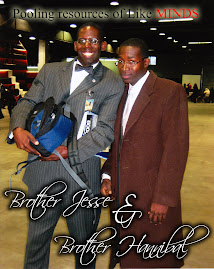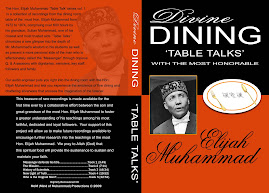Related articles on Time.com:
Saturday, September 19, 2009
Thursday, September 17, 2009
Blacks in Mexico Seek Government Recognition
Information Researched By: Sister Anonymous
Tuesday, September 15, 2009
U.S. Extends Cuba Embargo
| ||||||||||||||||||||||||||||||
Information Researched By: Sister Anonymous
Monday, September 14, 2009
Russell to Jordan: Game on
Bryon Russell has a message for Michael Jordan: Whenever you’re ready, I’ll be waiting in California – in my basketball shorts.
“I’ll play his a— right now,” Russell told Yahoo! Sports. “This is a call-out for him to come play me. He can come out here in his private jet and come play. He’s got millions of dollars. He can pay for the jet. He can meet me at the Recreation Center in Calabasas.
“We can have Mark Jackson do the commentating. We can have Mitch Richmond do the officiating. We can put it on TV and see if Michael’s still got it.”
Jordan spent much of his enshrinement speech at the Naismith Memorial Basketball Hall of Fame singling out players and coaches who had slighted, criticized or motivated him. Russell merited a special mention.
After Jordan’s first retirement from the NBA, he was playing minor-league baseball and stopped by the Chicago Bulls’ practice facility, where the Utah Jazz were working out. Jordan said Russell, then a rookie with the Jazz, introduced himself and challenged him.
- Celtics optimistic about Garnett's recovery Sep 10, 2009
- Grizzly task: Memphis needs A.I. to play role Sep 10, 2009
“…At this time I had no thoughts of coming back and playing the game of basketball,” Jordan said during his speech. “Bryon Russell came over to me and said, ‘Why’d you quit? You know I could guard you. If I ever see you in a pair of shorts…’
“When I did come back in 1995 and we played Utah in ’96, I’m at the center circle and Bryon Russell is standing next to me. I said, ‘You remember the [comments] you made in 1994 about, ‘I think I can guard you, I can shut you down, I would love to play against you? Well, you’re about to get your chance.’ ”
When the teams met in the ’98 Finals, Jordan hit his famous championship-clinching shot after knocking Russell backward. Jazz coach Jerry Sloan and point guard John Stockton, who also were being inducted, both shook their heads as Jordan told the story.
“From this day forward,” Jordan said, “if I ever see him in shorts, I’m coming at him.”
Russell said Jordan’s story was accurate and that he was honored, not offended, by his words.
“It was during my rookie year,” Russell said. “He turned to Karl [Malone] and said, ‘Hey Karl, is that your rookie?’ I really did say that to him. Karl was laughing and [Jordan] was laughing, too. …I guess I motivated him to come back. There had to be other reasons. You know he likes all challenges.
“Out of all the people he came across, he thought about me. I’m happy to be in his Hall of Fame speech.”
Russell said “not a single day passes” in which someone doesn’t ask him about Jordan’s shot over him. While playing for the Denver Nuggets, Russell and then-Nuggets interim coach Michael Cooper got in a heated debate about whether Jordan’s shot over Russell or Julius Erving’s famous acrobatic dunk over Cooper was more embarrassing. Looking back, Russell said he wasn’t humiliated to be part of such a historic play.
“To me, that’s the greatest play in basketball history,” Russell said. “It will stay that way because he will always be the greatest player to play the game. I didn’t mind. But the referees didn’t make the call on the push off.
“It’s long done and gone. It was a call that wasn’t made on a play that was great.”
Russell didn’t watch the Hall of Fame induction ceremony live because he was running errands with his 11-year-old son, Brandon, in Calabasas, Calif., but he did record it. After Jordan mentioned him, Russell received a voice message from his old Long Beach State coach, Seth Greenberg. Several other friends and family members also called and sent him text messages. As soon as Russell got home, he rushed to the television to watch Jordan.
Jordan and Russell were teammates with the Washington Wizards during the 2002-03 season, Jordan’s last in the NBA. Russell said Jordan never brought up the story while they were together and they never played one-on-one, either. Russell, now 38, last played in the NBA during the 2005-06 season, but he works out daily and is eager to “guard [Jordan] again and beat him.”
Russell encouraged Jordan to get his phone number from a mutual friend if he’s up for the challenge. Until then, he wants Jordan to know this:
“I keep my basketball shorts on.”
Brought to you by: Yahoo Sports
Sunday, September 13, 2009
Prince Turki al-Faisal, Op-Ed Contributor - Land First, Then Peace
http://www.nytimes.com/2009/09/13/opinion/13turki.html?th&emc=th
Information Researched By: Sister Anonymous








































